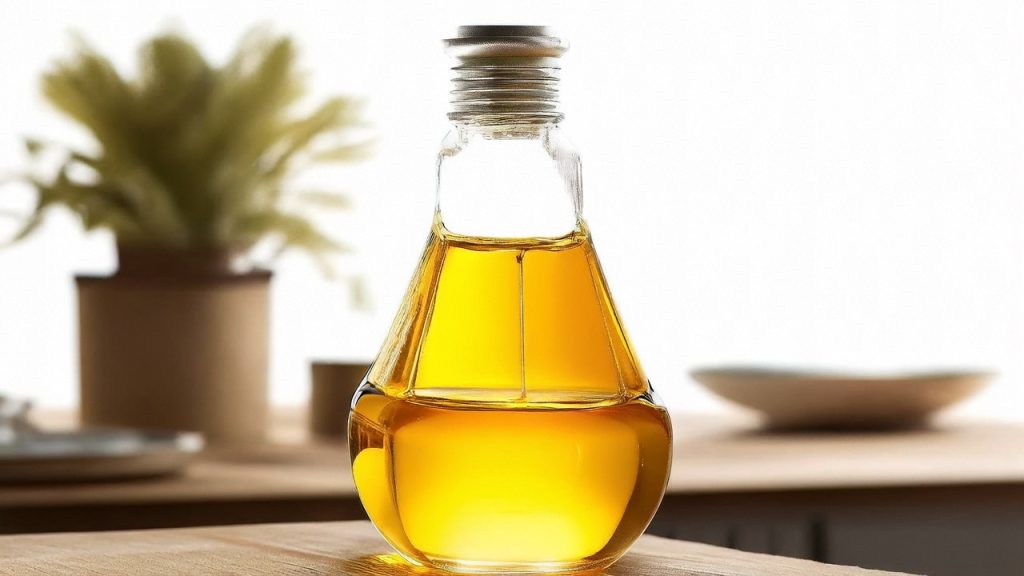DIfE study shows soy phospholipids reduce blood pressure, improve lipid profiles, and lower inflammation, suggesting benefits for cardiovascular health
Table of Contents
What is a phospholipid?
A phospholipid is a type of lipid molecule that is a major component of cell membranes and plays a crucial role in maintaining the structure and function of biological membranes. Their unique chemical structure, consisting of a hydrophilic (water-attracting) head group and two hydrophobic (water-repelling) fatty acid tails, allows them to form the lipid bilayer that is essential for cellular integrity and function.
Phospholipids have a glycerol backbone at their core, to which two fatty acid chains are attached. These chains are typically long and hydrocarbon in nature, making them hydrophobic. A phosphate group is attached to the glycerol backbone, and this group is connected to a hydrophilic head group, such as choline, ethanolamine, serine, or inositol. This dual nature of having both hydrophilic and hydrophobic regions enables phospholipids to form a bilayer structure, which is the basic framework of cell membranes.
In terms of biological functions, phospholipids are essential for the structure of cell membranes, providing a barrier that separates the internal environment of the cell from the external environment. The fluid mosaic model describes the cell membrane as a dynamic structure where phospholipids can move laterally, allowing for flexibility and selective permeability. Phospholipids also play a role in signal transduction pathways, such as the phosphatidylinositol signaling system, which involves the production of second messengers like inositol triphosphate (IP3) and diacylglycerol (DAG). Additionally, phospholipids provide a platform for the attachment and function of membrane proteins, which are essential for various cellular processes, including transport, signaling, and enzymatic activity.

There are several types of phospholipids, each with specific roles. Phosphatidylcholine (PC), also known as lecithin, is one of the most common phospholipids and is found in cell membranes and as a component of lipoproteins. Phosphatidylethanolamine (PE) is found in cell membranes and is involved in protein anchoring and membrane fusion. Phosphatidylserine (PS) is involved in cell signaling and apoptosis (programmed cell death). Phosphatidylinositol (PI) plays a role in signal transduction and membrane trafficking.
Phospholipids are essential for maintaining the integrity and function of cell membranes, which is critical for cellular health. They are involved in the regulation of inflammation and immune responses and are particularly important for neurological function. Phospholipids, particularly phosphatidylcholine, are components of myelin, the insulating sheath around nerve fibers, and are important for brain function.
In summary, phospholipids are a class of lipid molecules that are fundamental to the structure and function of cell membranes. Their unique chemical structure allows them to form the lipid bilayer that is essential for cellular integrity and function. Phospholipids play diverse roles in cell signaling, membrane fluidity, and the attachment of membrane proteins, making them crucial for various biological processes and overall health.
What is sunflower lecithin?
Sunflower lecithin is a type of lecithin derived from sunflower seeds. Lecithin is a naturally occurring phospholipid compound that is widely used in various industries, including food, pharmaceuticals, and cosmetics. Sunflower lecithin primarily consists of phosphatidylcholine (PC), phosphatidylethanolamine (PE), phosphatidylinositol (PI), and phosphatidylserine (PS). It also contains triglycerides, glycolipids, and small amounts of carbohydrates and proteins.
The production of sunflower lecithin involves extracting it from sunflower oil production by-products. The process typically involves solvent extraction or mechanical pressing to separate the lecithin from the oil. The extracted lecithin is then refined to remove impurities and improve its quality.
Sunflower lecithin possesses several key properties that make it valuable in various applications. It acts as an emulsifier, helping to mix water and oil-based ingredients, which is particularly useful in food and cosmetic formulations. It also has antioxidant properties, which help to protect products from oxidation and spoilage. Additionally, sunflower lecithin is rich in choline, an essential nutrient that supports brain health and liver function.
In the food industry, sunflower lecithin is used as an emulsifier in baking to improve texture and extend shelf life. It is also added to chocolate to reduce viscosity and prevent sugar from crystallizing. In the production of dietary supplements, sunflower lecithin is used to create softgels and capsules. In the pharmaceutical industry, it serves as a binding agent and emulsifier in the production of capsules and tablets, as well as in topical applications like creams and lotions. In cosmetics, sunflower lecithin is used in skincare products to enhance moisturization and improve skin barrier function, and in hair care products to improve texture and manageability.
One of the advantages of sunflower lecithin is its non-GMO status, as sunflower seeds are less likely to be genetically modified compared to soybeans. It is also generally considered allergen-free, making it suitable for individuals with soy or egg allergies. Additionally, sunflower lecithin is derived from a renewable resource and is considered more sustainable compared to other sources like soy or egg yolk.
In summary, sunflower lecithin is a phospholipid compound derived from sunflower seeds, known for its emulsifying, antioxidant, and nutritional properties. It is widely used in the food, pharmaceutical, and cosmetic industries for various applications, including as an emulsifier, binding agent, and nutrient supplement. Sunflower lecithin is often preferred for its non-GMO status, allergen-free nature, and sustainability.
What does sunflower lecithin do?
Sunflower lecithin is a versatile and beneficial compound derived from sunflower seeds, widely used in various industries due to its unique properties. It primarily consists of phospholipids, including phosphatidylcholine (PC), phosphatidylethanolamine (PE), phosphatidylinositol (PI), and phosphatidylserine (PS), along with triglycerides, glycolipids, and small amounts of carbohydrates and proteins. Here is a detailed overview of what sunflower lecithin does and its applications:

Emulsifying Properties
Sunflower lecithin acts as an emulsifier, which means it helps to mix water and oil-based ingredients. This property is particularly valuable in the food and cosmetic industries. In food products, sunflower lecithin ensures that ingredients remain evenly distributed, preventing separation and improving the texture and stability of the final product. For example, in baking, it helps to create a smooth dough and extend the shelf life of baked goods. In chocolate production, sunflower lecithin reduces viscosity, making the chocolate easier to work with, and prevents sugar from crystallizing, resulting in a smoother and glossier final product.
Antioxidant Properties
Sunflower lecithin has antioxidant properties, which help to protect products from oxidation and spoilage. Oxidation can lead to the degradation of fats and oils, causing rancidity and off-flavors. By incorporating sunflower lecithin into food and cosmetic products, manufacturers can enhance the stability and extend the shelf life of their products. This is particularly important in products that contain high levels of fats and oils, such as margarine, mayonnaise, and skincare creams.
Nutritional Benefits
Sunflower lecithin is rich in choline, an essential nutrient that plays a crucial role in various bodily functions. Choline supports brain health by aiding in the synthesis of acetylcholine, a neurotransmitter involved in memory and muscle control. It also supports liver function by helping to metabolize fats and prevent the buildup of fat in the liver. Additionally, choline is important for maintaining cell membrane integrity and facilitating communication between cells. The nutritional benefits of sunflower lecithin make it a valuable ingredient in dietary supplements, where it is used to create softgels and capsules that deliver essential nutrients to the body.
Applications in the Food Industry
In the food industry, sunflower lecithin is used in a wide range of products. It is commonly added to baked goods, such as bread, cakes, and pastries, to improve texture, enhance moisture retention, and extend shelf life. In chocolate and confectionery products, sunflower lecithin is used to reduce viscosity, improve flow properties, and prevent sugar crystallization. It is also used in margarine, mayonnaise, and salad dressings to ensure a smooth and consistent texture. Additionally, sunflower lecithin is used in the production of dietary supplements, where it serves as a binding agent and emulsifier in softgels and capsules.
Applications in the Pharmaceutical Industry
In the pharmaceutical industry, sunflower lecithin is used as a binding agent and emulsifier in the production of capsules and tablets. It helps to ensure that the active ingredients are evenly distributed and adhere to the tablet or capsule, improving the stability and effectiveness of the medication. Sunflower lecithin is also used in topical applications, such as creams, lotions, and ointments, to improve texture, enhance moisturization, and stabilize the formulation. Its emulsifying properties help to create a smooth and consistent product that is easy to apply and absorb.
Applications in the Cosmetic Industry
In the cosmetic industry, sunflower lecithin is used in a variety of skincare and haircare products. In skincare, it is added to creams, lotions, and serums to enhance moisturization, improve skin barrier function, and provide antioxidant protection. Sunflower lecithin helps to create a smooth and non-greasy texture, making it easier to apply and absorb into the skin. In haircare products, such as shampoos, conditioners, and styling creams, sunflower lecithin is used to improve texture, enhance manageability, and provide conditioning benefits. Its emulsifying properties help to create a stable and effective product that delivers the desired benefits to the hair and scalp.
One of the key advantages of sunflower lecithin is its non-GMO status. Sunflower seeds are less likely to be genetically modified compared to soybeans, making sunflower lecithin a preferred choice for consumers who prioritize non-GMO products. Additionally, sunflower lecithin is generally considered allergen-free, making it suitable for individuals with soy or egg allergies. Its sustainable sourcing from a renewable resource also makes it an environmentally friendly choice.
Sunflower lecithin is a versatile and beneficial compound derived from sunflower seeds, known for its emulsifying, antioxidant, and nutritional properties. It is widely used in the food, pharmaceutical, and cosmetic industries for various applications, including as an emulsifier, binding agent, and nutrient supplement. Sunflower lecithin helps to create stable, high-quality products with improved texture, extended shelf life, and enhanced nutritional benefits. Its non-GMO status, allergen-free nature, and sustainable sourcing make it a preferred choice for manufacturers and consumers alike.
Is sunflower lecithin bad for you?
Sunflower lecithin is generally considered safe for most people and is widely used in various industries due to its beneficial properties. However, like any substance, it may have potential side effects or risks for certain individuals. Here are some key points to consider:
1. Safety and General Use:
- Food Industry: Sunflower lecithin is commonly used as an emulsifier, stabilizer, and antioxidant in food products. It is generally recognized as safe (GRAS) by regulatory agencies such as the U.S. Food and Drug Administration (FDA).
- Pharmaceuticals and Cosmetics: It is also used in these industries for its emulsifying and stabilizing properties, and it is considered safe for topical and oral use.
2. Nutritional Benefits:
- Choline: Sunflower lecithin is rich in choline, an essential nutrient that supports brain health, liver function, and cell membrane integrity. Choline is important for various bodily functions and is often added to dietary supplements.
- Antioxidant Properties: It has antioxidant properties that help protect products from oxidation and spoilage.
3. Potential sunflower lecithin side effects
- Allergic Reactions: While sunflower lecithin is generally considered allergen-free, some individuals may have allergies or sensitivities to sunflower products. Symptoms of an allergic reaction can include itching, swelling, and difficulty breathing.
- Digestive Issues: Some people may experience mild digestive issues, such as bloating or gas, when consuming large amounts of sunflower lecithin.
- Interactions with Medications: Sunflower lecithin may interact with certain medications, particularly those that affect the liver or blood clotting. It is important to consult with a healthcare provider before using sunflower lecithin supplements, especially if you are taking other medications.
4. Quality and Purity:
- Source and Processing: The safety and quality of sunflower lecithin can depend on the source and processing methods. High-quality, well-processed sunflower lecithin is less likely to contain contaminants or impurities.
- Supplements: When using sunflower lecithin supplements, it is important to choose reputable brands that follow good manufacturing practices (GMP) and have third-party certifications for quality and purity.
5. Sustainability and Ethical Considerations:
- Non-GMO and Allergen-Free: Sunflower lecithin is often preferred for its non-GMO status and allergen-free nature, making it a suitable choice for individuals with soy or egg allergies.
- Sustainable Sourcing: Sunflower lecithin is derived from a renewable resource and is considered more sustainable compared to other sources like soy or egg yolk.
Sunflower lecithin is generally safe for most people and offers several nutritional and functional benefits. It is widely used in the food, pharmaceutical, and cosmetic industries for its emulsifying, antioxidant, and nutrient-rich properties. However, potential side effects, such as allergic reactions or digestive issues, may occur in some individuals. It is important to choose high-quality products and consult with a healthcare provider if you have any concerns or are taking other medications. Overall, sunflower lecithin is a beneficial and sustainable ingredient that is well-tolerated by most people.
What is soy lecithin used for?
Soy lecithin is a versatile and widely used ingredient derived from soybeans. It is a phospholipid compound that offers several beneficial properties, making it valuable in various industries. In the food industry, soy lecithin acts as an emulsifier, helping to mix water and oil-based ingredients. This property is particularly useful in food products to ensure that ingredients remain evenly distributed, preventing separation and improving the texture and stability of the final product.
For example, in baking, soy lecithin is used to create a smooth dough and extend the shelf life of baked goods. It helps to improve the texture and moisture retention of bread, cakes, and pastries. In chocolate and confectionery products, soy lecithin is added to reduce viscosity, improve flow properties, and prevent sugar crystallization, resulting in a smoother and glossier final product. It is also used in margarine, mayonnaise, and salad dressings to ensure a smooth and consistent texture. Additionally, soy lecithin is used in the production of dietary supplements, including softgels and capsules, as a binding agent and emulsifier.

In the pharmaceutical industry, soy lecithin is used as a binding agent and emulsifier in the production of capsules and tablets. It helps to ensure that the active ingredients are evenly distributed and adhere to the tablet or capsule, improving the stability and effectiveness of the medication. Soy lecithin is also used in creams, lotions, and ointments to improve texture, enhance moisturization, and stabilize the formulation. Its emulsifying properties help to create a smooth and consistent product that is easy to apply and absorb.
In the cosmetic industry, soy lecithin is added to creams, lotions, and serums to enhance moisturization, improve skin barrier function, and provide antioxidant protection. It helps to create a smooth and non-greasy texture, making it easier to apply and absorb into the skin. In haircare products, such as shampoos, conditioners, and styling creams, soy lecithin is used to improve texture, enhance manageability, and provide conditioning benefits. Its emulsifying properties help to create a stable and effective product that delivers the desired benefits to the hair and scalp.
Soy lecithin also has industrial applications. It is used as a lubricant in various industrial applications, including metalworking and textile manufacturing. Additionally, it is used as an emulsifier in the formulation of pesticides and herbicides, helping to mix the active ingredients with water and improve the effectiveness of the product.
Nutritionally, soy lecithin is rich in choline, an essential nutrient that supports brain health, liver function, and cell membrane integrity. Choline is important for various bodily functions and is often added to dietary supplements. Soy lecithin also has antioxidant properties that help protect products from oxidation and spoilage.
In summary, soy lecithin is a versatile and beneficial ingredient derived from soybeans, widely used in the food, pharmaceutical, cosmetic, and industrial sectors. Its primary uses include acting as an emulsifier, binding agent, and antioxidant, as well as providing nutritional benefits. Soy lecithin helps to create stable, high-quality products with improved texture, extended shelf life, and enhanced nutritional benefits.
Is soy lecithin gluten free?
Yes, soy lecithin is generally considered gluten-free. Soy lecithin is derived from soybeans and primarily consists of phospholipids, including phosphatidylcholine (PC), phosphatidylethanolamine (PE), phosphatidylinositol (PI), and phosphatidylserine (PS). It also contains triglycerides, glycolipids, and small amounts of carbohydrates and proteins. Gluten, on the other hand, is a protein found in wheat, barley, rye, and triticale. Since soybeans do not contain gluten, soy-derived products like soy lecithin are naturally free from gluten.
The extraction process of soy lecithin typically involves using solvents like hexane or mechanical pressing to separate the lecithin from the soybeans. This process does not involve any gluten-containing grains, ensuring that the final product is free from gluten. After extraction, the lecithin is refined to remove impurities and improve its quality. This refinement process further ensures that any potential gluten contamination is eliminated.
Many manufacturers of soy lecithin obtain gluten-free certification to assure consumers of its gluten-free status. This certification involves rigorous testing and adherence to strict manufacturing standards to prevent cross-contamination. Products containing soy lecithin are often labeled as gluten-free if they meet the regulatory criteria for gluten content, typically less than 20 parts per million (ppm) of gluten.
While soy lecithin is gluten-free, it is important to note that some individuals may have soy allergies. Soy lecithin contains soy proteins, which can trigger allergic reactions in sensitive individuals. Additionally, in some cases, soy lecithin may be produced in facilities that also process gluten-containing grains. To minimize the risk of cross-contamination, it is advisable to choose products that are certified gluten-free or produced in dedicated gluten-free facilities.
In summary, soy lecithin is generally considered gluten-free, as it is derived from soybeans and does not contain gluten-containing grains. The extraction and refinement processes ensure that the final product is free from gluten. Many manufacturers obtain gluten-free certification for their soy lecithin products, and these products are often labeled as gluten-free. However, individuals with soy allergies should be cautious, as soy lecithin contains soy proteins. To minimize the risk of cross-contamination, it is advisable to choose products that are certified gluten-free or produced in dedicated gluten-free facilities.
Phospholipids and chronic diseases
One notable European research study on the relationship between phospholipids and chronic diseases such as hypertension and hyperlipidemia was conducted by the German Institute of Human Nutrition (DIfE) in Potsdam, Germany. This study aimed to investigate the potential benefits of phospholipids, particularly those derived from soy, in managing and preventing cardiovascular diseases.
The German Institute of Human Nutrition (DIfE) is a leading institution in nutritional science, epidemiology, and experimental nutrition research. The study titled “Impact of Soy Phospholipids on Cardiovascular Risk Factors: A Randomized Controlled Trial” focused on evaluating the effects of soy phospholipids on blood pressure, lipid profiles, and other cardiovascular risk factors in individuals with pre-existing hypertension and hyperlipidemia.
The study involved a randomized, double-blind, placebo-controlled trial. Participants were divided into two groups: one group received a supplement containing soy phospholipids, while the other group received a placebo. The study lasted for 12 weeks, during which participants’ blood pressure, lipid profiles, and other relevant biomarkers were monitored.
The findings of the study were significant. The group receiving soy phospholipids showed a significant reduction in systolic and diastolic blood pressure compared to the placebo group. This suggests that soy phospholipids may have a beneficial effect on hypertension. Additionally, participants in the soy phospholipid group experienced a notable decrease in total cholesterol, LDL cholesterol, and triglyceride levels, while HDL cholesterol levels increased. These changes indicate an improvement in lipid profiles, which are associated with a reduced risk of cardiovascular diseases. The study also found a reduction in inflammatory markers, such as C-reactive protein (CRP), in the soy phospholipid group. Lower levels of inflammatory markers are associated with a decreased risk of cardiovascular events.
The conclusion of the study suggests that soy phospholipids may have a positive impact on cardiovascular risk factors, including blood pressure and lipid profiles. These results support the potential use of soy phospholipids as a dietary intervention for managing and preventing chronic diseases such as hypertension and hyperlipidemia.
In summary, the German Institute of Human Nutrition (DIfE) conducted a randomized controlled trial to investigate the effects of soy phospholipids on cardiovascular risk factors. The study found that soy phospholipids significantly reduced blood pressure, improved lipid profiles, and lowered inflammatory markers in participants with pre-existing hypertension and hyperlipidemia. These findings suggest that soy phospholipids may be beneficial in managing and preventing chronic diseases related to cardiovascular health.




